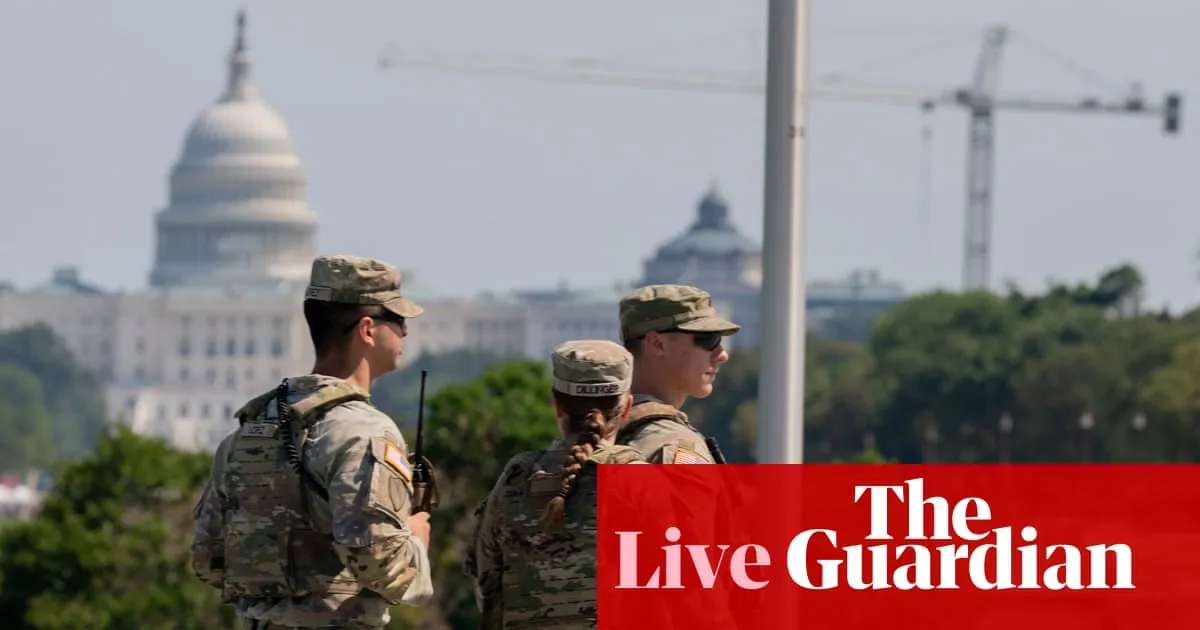
In a dramatic turn of events in U.S. politics, former President Donald Trump has threatened to declare a national emergency and federalize Washington D.C. after Mayor Muriel Bowser announced that the city's police would not cooperate with Immigration and Customs Enforcement (ICE). The agency has faced accusations of racially profiling individuals while taking suspects into custody, raising concerns about civil liberties and law enforcement practices in the capital.
On August 11, Trump exercised control over the city’s Metropolitan Police Department (MPD) for a 30-day period, deploying the National Guard and federal officers under the guise of combating crime and homelessness. However, many observers viewed this action as a blatant example of federal overreach. Despite the ongoing issues with gun violence, it's noteworthy that Washington D.C. currently boasts its lowest violent crime rate in 30 years, significantly lower than many cities in Republican-run states.
Although Trump's emergency declaration has since expired, over 2,000 National Guard troops remain deployed in the district, including several hundred from states governed by Republicans. The timeline for their withdrawal remains uncertain. In response to the situation, Bowser issued an executive order earlier this month mandating ongoing collaboration between local law enforcement and various federal agencies, explicitly excluding ICE from this cooperation.
Trump attributed Bowser's decision to pressure from “Radical Left Democrats,” asserting that if local police ceased their collaboration with ICE, “Crime would come roaring back.” He reassured the residents and businesses of Washington D.C., stating, “DON’T WORRY, I AM WITH YOU, AND WON’T ALLOW THIS TO HAPPEN. I’ll call a National Emergency, and Federalize, if necessary!!!” This ongoing dispute illustrates the heightened tensions surrounding immigration enforcement and local governance in the United States.
In related news, Bronx Congressman Ritchie Torres (D-NY) plans to introduce legislation this week directing the Department of Homeland Security to explore the feasibility of using drones for preventing assassination attempts. Torres stated, “Common sense dictates that drone technology should be harnessed to scan every elevated structure with a line of sight to a target. Better to have vigilant eyes in the sky than to remain blind to would-be assassins,” following the recent killing of commentator Charlie Kirk during a speaking event.
Meanwhile, U.S. Secretary of State Marco Rubio met with Israeli Prime Minister Benjamin Netanyahu in Jerusalem, reaffirming Washington's "unwavering support" for Israel amid ongoing military actions in Gaza. This meeting coincides with a summit of Arab leaders expressing solidarity with Qatar following Israel's recent military actions against Hamas leaders.
In another significant development, the South Korean government has announced a review of potential human rights violations following the arrests of hundreds of South Korean workers at a construction site in Georgia. The arrests were executed by ICE, with officials alleging visa overstays. The images of chained and handcuffed workers sparked outrage and calls for accountability in the immigration enforcement process.
On the local political front, New York Governor Kathy Hochul has endorsed Zohran Mamdani in his bid for mayor of New York City. In a New York Times opinion piece, Hochul emphasized the importance of collaboration between the governor's office and the mayor’s office for the benefit of residents. Her endorsement reflects the increasing support for progressive candidates in the city.
As the political landscape continues to evolve, attention remains on Trump's threats and the implications for national security and local governance in Washington D.C. Stay tuned for more updates on these pressing political matters.